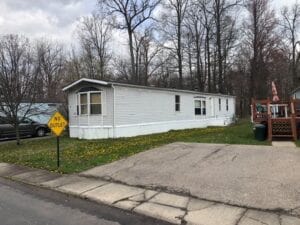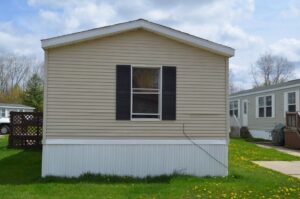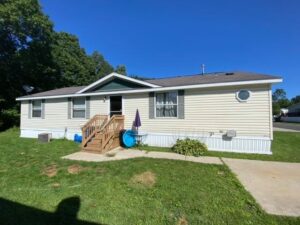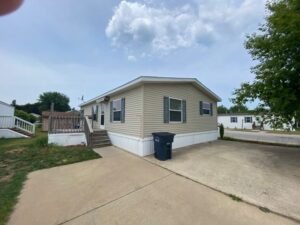Welcome to the world of co-op resident ownership, where homeownership takes on a unique twist! Imagine a community where residents not only live in a building but also own it collectively. It’s like having your cake and eating it too – or in this case, owning the cake and sharing it with your neighbors!
Resident Owned Communities Co-op
Co-op resident ownership offers numerous benefits for communities. Picture this: you become part of a tight-knit group that works together to maintain and improve the building. It’s like being part of an exclusive club, except everyone gets to enjoy the perks! From shared responsibilities to decision-making power, co-op resident ownership empowers individuals to shape their living environment.

But wait, there’s more! With co-op resident ownership, you’re not just another face in the crowd; you’re an active participant in creating a vibrant community. You have a say in how things are run and can contribute your ideas for making your building even better. It’s like being the mayor of your own little town!
So if you’re looking for a community-focused approach to homeownership that goes beyond mere property investment, look no further than co-op resident ownership. Get ready to embark on an exciting journey where you build not just walls but lasting connections with your neighbors.
Understanding Cooperative Principles and Special Considerations for Resident Owned Communities Co-ops
Cooperative principles lie at the heart of any co-op organization, emphasizing democratic control and shared responsibility among its members. These principles ensure that every individual has a voice in the decision-making process and fosters a sense of community involvement.
Cooperative Principles: Democratic Control and Shared Responsibility
Cooperatives are built on the foundation of democratic control, where each member has an equal say in shaping the organization’s policies and practices. Unlike traditional businesses driven solely by profit motives, cooperatives prioritize the collective well-being of their members. This partnership approach ensures that decisions are made with everyone’s best interest in mind.
Shared responsibility is another key principle within cooperatives. Members actively participate in running the business, contributing not only financially but also through their skills and expertise. This collaborative effort strengthens the sense of ownership and commitment within the cooperative community.
Special Considerations for Co-ops: Decision-Making Process and Community Involvement
The decision-making process in co-ops differs from other types of organizations. Instead of a top-down hierarchy where decisions are made by a few individuals, co-ops embrace a more inclusive approach. All members have an opportunity to voice their opinions during meetings or through elected representatives on the board of directors.
Community involvement plays a pivotal role in co-op success. As part owners, members are encouraged to actively engage with one another, fostering a strong sense of belonging and camaraderie. Regular gatherings such as social events or workshops provide opportunities for collaboration, skill-sharing, and building lasting relationships within the cooperative network.
Importance of Transparency in Co-op Operations: Resident Owned Communities Co-op
Transparency is paramount. Open communication channels ensure that all members stay informed about important matters affecting the organization. By sharing financial statements, business updates, and policy changes, cooperatives maintain an atmosphere of trust and accountability.
To enhance transparency, co-ops often establish clear rules and policies that govern their operations. These guidelines outline the rights and responsibilities of members, ensuring fairness and equality within the organization. Regular audits or financial checks are conducted to maintain integrity and security in managing cooperative resources.

Exploring Resident Owned Communities (ROCs) Versus Other Housing Cooperatives
ROCs vs Traditional Housing Cooperatives: Focus on Mobile Home Parks
Resident Owned Communities (ROCs) offer a unique alternative to traditional housing cooperatives, particularly in the context of mobile home parks. While both types of cooperatives involve shared ownership and decision-making among residents, ROCs specifically cater to the needs of those living in mobile homes.
In traditional housing cooperatives, residents collectively own and manage a building or complex consisting of multiple units. This model is commonly found in urban areas where apartments are the primary form of housing. On the other hand, ROCs primarily operate within mobile home parks, providing an affordable homeownership option for individuals and families seeking a sense of community while enjoying the benefits of owning their own property.
Advantages of ROCs Over Other Types of Housing Cooperatives
There are several advantages that set ROCs apart from other types of housing cooperatives. Firstly, ROCs empower residents by giving them control over their living environment. Through democratic governance structures, residents have a say in decision-making processes that directly impact their community. This level of involvement fosters a strong sense of belonging and encourages active participation among residents.
Secondly, ROCs provide affordable housing options for individuals who may not be able to afford conventional homeownership or face challenges accessing affordable rental accommodation. By offering an opportunity to purchase a share in the cooperative and become a co-owner, ROCs enable individuals to build equity while enjoying the benefits of residing in a supportive community.
Because ROCs are resident-owned and managed, they often prioritize long-term affordability over profit maximization. This means that as owners themselves, residents have more control over costs associated with maintenance fees and utilities. As a result, monthly expenses tend to be lower compared to renting or owning traditional homes.
How ROCs Promote Affordable Housing Options
One key way in which ROCs promote affordable housing options is through their ability to secure financing for the cooperative as a whole. Traditional lenders may be hesitant to provide loans for individual mobile homes due to their depreciating value, making it difficult for residents to secure affordable financing on their own. However, by pooling resources and applying for loans collectively, ROCs can negotiate better terms and access funding that might otherwise be inaccessible.
Furthermore, ROCs often benefit from government programs and nonprofit organizations dedicated to supporting affordable housing initiatives. These entities offer grants, subsidies, and technical assistance specifically tailored to resident-owned communities. Such support helps lower costs associated with initial setup, maintenance, and improvements within the community.
Benefits and Advantages of Resident-Owned Mobile Home Parks in Florida
Affordable Homeownership through Resident-Owned Mobile Home Parks in Florida
One of the major benefits of resident-owned mobile home parks in Florida is the opportunity for affordable homeownership. With the rising costs of traditional housing, many individuals and families are seeking alternative options that provide them with a sense of ownership without breaking the bank. In resident-owned mobile home parks, residents have the chance to own their homes while paying lower prices compared to conventional houses.

Mobile homes, also known as manufactured housing, offer a cost-effective solution for those looking to become homeowners. These homes are built off-site and transported to the park where they are assembled. The affordability factor extends beyond just the initial purchase price; residents often find that ongoing expenses such as utilities and maintenance are more manageable compared to larger properties.
Stability and Security Offered by Resident-Owned Mobile Home Parks
Residents who choose co-op living in mobile home parks benefit from enhanced stability and security. Unlike renting an apartment or house, owning a mobile home within a resident-owned park provides a greater sense of permanence. This stability allows individuals and families to establish roots within a community, fostering connections with neighbors and creating a true sense of belonging.
Moreover, resident-owned mobile home parks offer security through established rules and regulations that ensure peaceful coexistence among residents. These guidelines help maintain property values by setting standards for upkeep and appearance throughout the community. Many parks implement security measures such as gated entrances or surveillance systems to further enhance safety for all residents.
Financial Benefits for Residents in Florida’s Resident-Owned Mobile Home Parks
Living in a resident-owned mobile home park can bring various financial advantages to its residents. Firstly, lower upfront costs make it easier for individuals with limited savings or lower incomes to enter the housing market. This accessibility enables more people to achieve their dream of homeownership without facing insurmountable financial barriers.
Furthermore, residents can benefit from potential appreciation in the value of their mobile homes. As the demand for affordable housing continues to rise, the value of well-maintained mobile homes within resident-owned parks may increase over time. This appreciation provides an opportunity for residents to build equity and potentially generate a return on their investment.
Residents also enjoy cost savings through shared expenses within the park community. Common amenities such as clubhouse facilities, swimming pools, or recreational areas are often available for use by all residents at a fraction of the cost compared to private ownership. Some resident-owned parks offer shared maintenance services or group purchasing power for utilities, resulting in further financial benefits.
Success Stories: How Resident-Owned Co-ops Save Homeowners Money
Real-life Examples of Cost Savings Achieved by Residents in Co-op Owned Communities
Resident-owned co-ops have proven to be a game-changer for homeowners, offering tangible benefits that go beyond the traditional housing model. One of the most compelling advantages is the significant cost savings experienced by those who choose this cooperative ownership structure.

Take the case of Green Meadows Co-op, a tight-knit community nestled in the suburbs. By pooling their resources and working together, residents have managed to slash their monthly expenses. For instance, through collective purchasing power, they negotiated lower prices on bulk orders for essential items like maintenance supplies and landscaping services. This not only reduced individual costs but also ensured high-quality services for all homeowners within the community.
Another remarkable example comes from Oakwood Estates, where residents successfully lobbied local authorities to reassess property taxes collectively. By presenting a unified front, they were able to demonstrate that their homes were more energy-efficient compared to neighboring properties. Consequently, this led to substantial reductions in property tax bills for each homeowner. The financial relief was palpable and made a significant difference in their overall budgets.
Long-term Financial Stability Through Cooperative Ownership
Cooperative ownership offers more than just immediate savings; it provides long-term financial stability as well. Unlike traditional homebuyers who are solely responsible for bearing all costs associated with repairs and maintenance, resident-owned co-op members share these expenses collectively.
Consider Willow Creek Village, where residents contribute a fixed monthly fee into a communal fund dedicated to covering common area maintenance and repairs. This approach ensures that no individual homeowner is burdened with unexpected or exorbitant costs when major repairs are needed. Instead of facing financial strain or resorting to loans or credit cards, homeowners can rest easy knowing that they have already budgeted for such eventualities.
Furthermore, resident-owned co-ops often establish reserve funds to tackle larger-scale projects like roof replacements or infrastructure upgrades. By setting aside funds over time, homeowners can avoid sudden special assessments or the need for expensive loans. This proactive approach to financial planning not only safeguards homeowners’ budgets but also enhances the overall value and desirability of the community.
Reduced Expenses Through Collective Purchasing Power
The power of collective purchasing cannot be underestimated. By leveraging their combined buying potential, homeowners can secure substantial discounts on a wide range of goods and services.
In Maple Grove Estates, residents have formed a cooperative buying group that negotiates with local vendors for everything from insurance policies to landscaping equipment. As a result, they enjoy exclusive pricing options that are typically reserved for large commercial entities. Homeowners in this co-op benefit from significant cost reductions on home insurance premiums, lawn care services, and even utility bills.
Similarly, at Lakeview Meadows Co-op, residents have joined forces to create a bulk-buying program for household essentials such as cleaning supplies and groceries. By purchasing items collectively in large quantities directly from manufacturers or distributors, they eliminate middlemen markups and pass on the savings to individual homeowners. The convenience of ordering online and having products delivered right to their doorsteps further adds to the appeal of this cost-saving initiative.
You might also be interested in our article:
Unique Features of Resident-Owned Co-ops As a Form of Home Ownership
Resident-owned co-ops offer a distinct and inclusive approach to home ownership, fostering a strong sense of community and shared responsibility among residents. Let’s explore some of the unique features that make this type of housing arrangement so appealing.
Collective Decision-Making Process in Resident-owned Co-op Communities
One of the standout characteristics of resident-owned co-ops is the collective decision-making process that empowers all members to have a say in how their community operates. Unlike traditional homeownership models where decisions are made solely by individual property owners, resident-owned co-ops encourage active participation from every member.

Residents come together regularly to discuss and vote on various matters concerning their homes and common areas. This democratic approach ensures that everyone’s voice is heard, fostering a strong sense of ownership and pride in the community. Whether it’s approving renovations or setting guidelines for shared spaces, each resident has an equal opportunity to influence the direction and development of their living environment.
Sense of Community Fostered by Shared Responsibilities
In resident-owned co-ops, residents not only share decision-making power but also take on shared responsibilities for maintaining and managing the property. This collaborative effort creates a tight-knit community where neighbors actively work together towards common goals.
From organizing maintenance tasks to overseeing financial matters, residents have the opportunity to contribute their skills and expertise to benefit the entire community. This sense of camaraderie goes beyond mere interactions between neighbors; it cultivates meaningful relationships built on trust, cooperation, and mutual support.
Residents often organize social events, such as potlucks or game nights, which further strengthen these bonds. The shared responsibilities create an environment where everyone feels invested in preserving the quality of life within their residence while building lasting friendships along the way.
Opportunities For Active Participation and Engagement
Unlike other forms of homeownership where individuals may feel detached from decision-making processes or lack avenues for involvement, resident-owned co-ops provide numerous opportunities for active participation and engagement.
Members can join committees or task forces dedicated to specific areas of interest, such as landscaping, finance, or community outreach. These committees allow residents to contribute their skills and passions towards enhancing the overall well-being of the community.
Moreover, resident-owned co-ops often organize educational workshops and social activities that encourage residents to learn new skills, share knowledge, and engage in meaningful conversations. This enriching environment fosters personal growth while strengthening the fabric of the community.
Managing Lot Rent and Mitigating Potential Increases in Resident-Owned Communities
Strategies to Manage Lot Rent Effectively in Resident-Owned Communities
Managing lot rent effectively is crucial in resident-owned communities to ensure that tenants can afford to live comfortably while also covering the expenses associated with real property ownership. One strategy is to establish a transparent and fair process for determining lot rents. This involves considering factors such as real estate taxes, maintenance costs, and landscaping expenses that contribute to the overall upkeep of the community.
To mitigate potential increases in lot rent, resident-owned communities can implement measures that prioritize stability and affordability. One approach is to cap annual increases at a reasonable percentage or tie them directly to inflation rates. This prevents sudden spikes in lot rents that could burden residents financially.
Implementing long-term planning strategies can help manage lot rent effectively. By carefully forecasting future expenses and creating reserve funds, community management can better anticipate financial needs without resorting to significant rent hikes.
Measures Taken to Prevent Excessive Lot Rent Increases
Preventing excessive lot rent increases requires proactive measures from both residents and management. Open communication plays a vital role in this regard. Regular meetings between residents and management enable discussions about any proposed changes in lot rents, allowing for input from all parties involved.
Another measure is establishing clear guidelines regarding how additional costs will be allocated among tenants. This ensures transparency and fairness.
Furthermore, co-op resident-owned communities have the advantage of collective decision-making power. Residents have control over their living environment and can actively participate in decisions related to budgeting, expenditures, and any potential increase in lot rents. This level of involvement empowers tenants by giving them a say in matters that directly impact their financial well-being.
Importance of Open Communication Between Residents and Management
Open communication between residents and management is essential for maintaining harmony within co-op resident-owned communities. It fosters trust, understanding, and cooperation, which are crucial elements in effectively managing lot rents.
When residents feel heard and their concerns are addressed promptly, it creates a sense of ownership and shared responsibility. Regular communication channels, such as community newsletters or online forums, can facilitate ongoing dialogue between residents and management.
By actively involving tenants in decision-making processes related to lot rents and other financial matters, management can ensure that the needs and interests of the community are well-represented. This collaborative approach promotes a sense of unity among residents while mitigating potential conflicts that may arise from sudden or unjustified rent increases.
Concluding Thoughts on Co-op Resident Ownership
Congratulations! You’ve now gained a deeper understanding of co-op resident ownership and the unique advantages it offers. By exploring cooperative principles, comparing resident-owned communities to other housing cooperatives, and delving into success stories, you’ve discovered how these co-ops can save homeowners money while providing a sense of community and stability.
So what’s next? If you’re considering becoming part of a resident-owned co-op, take the leap! Embrace the opportunity to own your home while enjoying the benefits of shared responsibilities and decision-making within a close-knit community. Remember, by choosing this path, you’re not just investing in property; you’re investing in a lifestyle that prioritizes cooperation and mutual support.
FAQs: Resident Owned Communities Co-op
How do I become a member of a resident-owned co-op?
To become a member of a resident-owned co-op, start by researching existing communities in your area. Reach out to their management or board members for information on availability and application processes. They will guide you through the necessary steps to join their community.
Can I sell my home if I live in a resident-owned co-op?
Yes, you can sell your home in a resident-owned co-op. However, there may be specific guidelines or restrictions set by the community regarding potential buyers or resale procedures. Consult with your co-op’s management or board to understand the process and any requirements involved.
What are the financial obligations of living in a resident-owned co-op?
Living in a resident-owned co-op involves financial obligations such as monthly lot rent or maintenance fees. These fees contribute to overall community expenses like property maintenance, utilities, insurance, and shared amenities. It’s crucial to understand these financial commitments before joining a resident-owned co-op.
Are there any downsides to living in a resident-owned co-op?
While there are numerous benefits to living in a resident-owned co-op, it’s essential to consider potential downsides. These may include limited control over property modifications, the need for community consensus on certain decisions, and the possibility of increased fees or assessments. Evaluate these factors based on your personal preferences and circumstances.
How are disputes or conflicts resolved within a resident-owned co-op?
Disputes or conflicts within a resident-owned co-op are typically handled through established procedures outlined in the cooperative’s bylaws. These procedures often involve mediation, arbitration, or decision-making by the board or members. Each co-op may have its own specific methods for conflict resolution.
Remember, if you have any additional questions or concerns about resident-owned co-ops, don’t hesitate to reach out to existing communities for more information. They’ll be happy to share their experiences and provide insights into this unique form of home ownership.
You might also be interested in our articles:
Temporary Mobile Home Housing While Building
